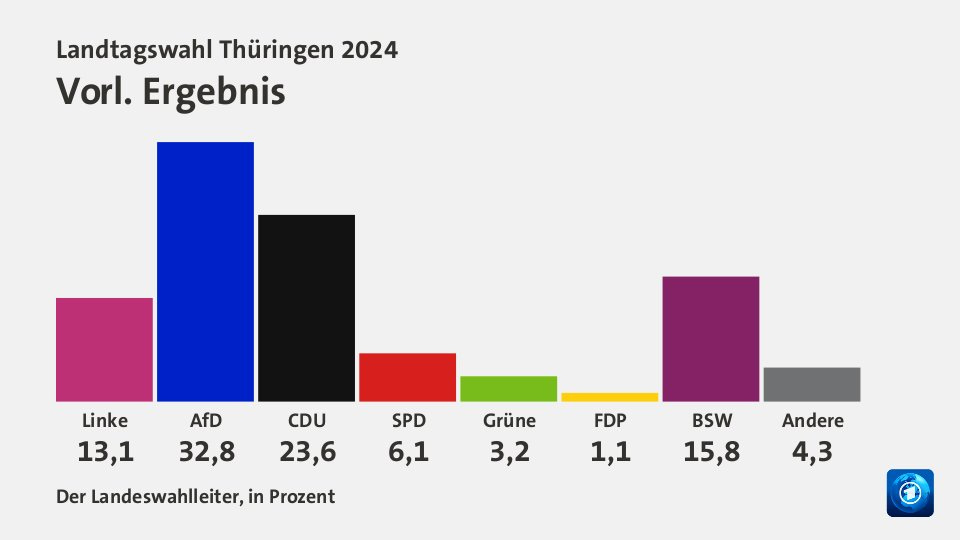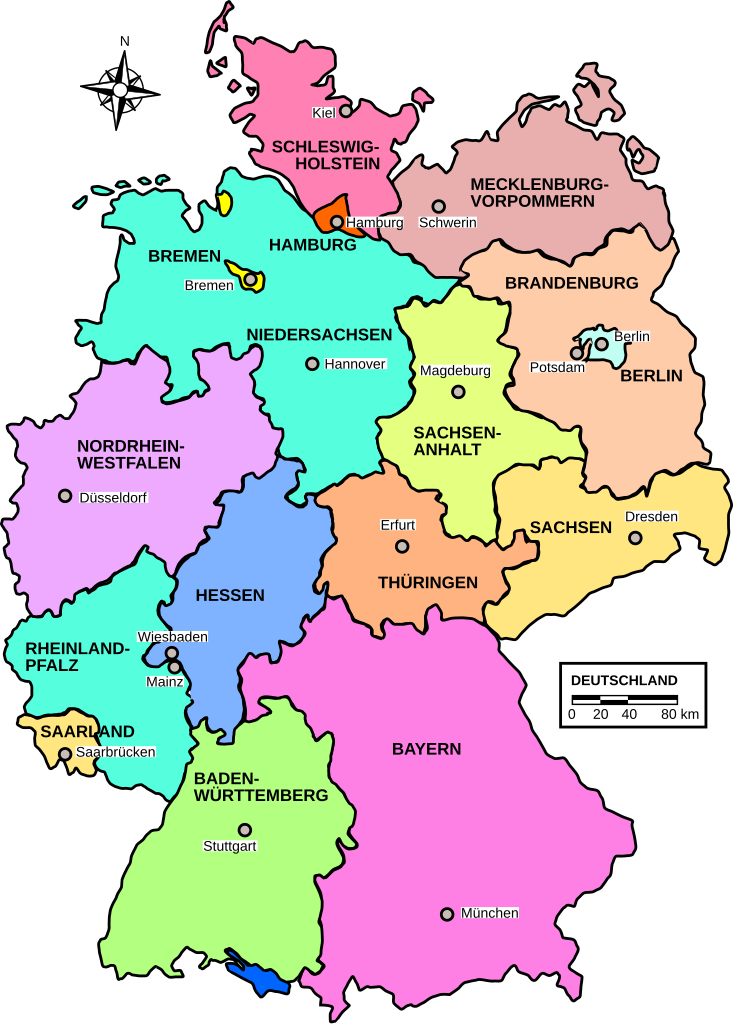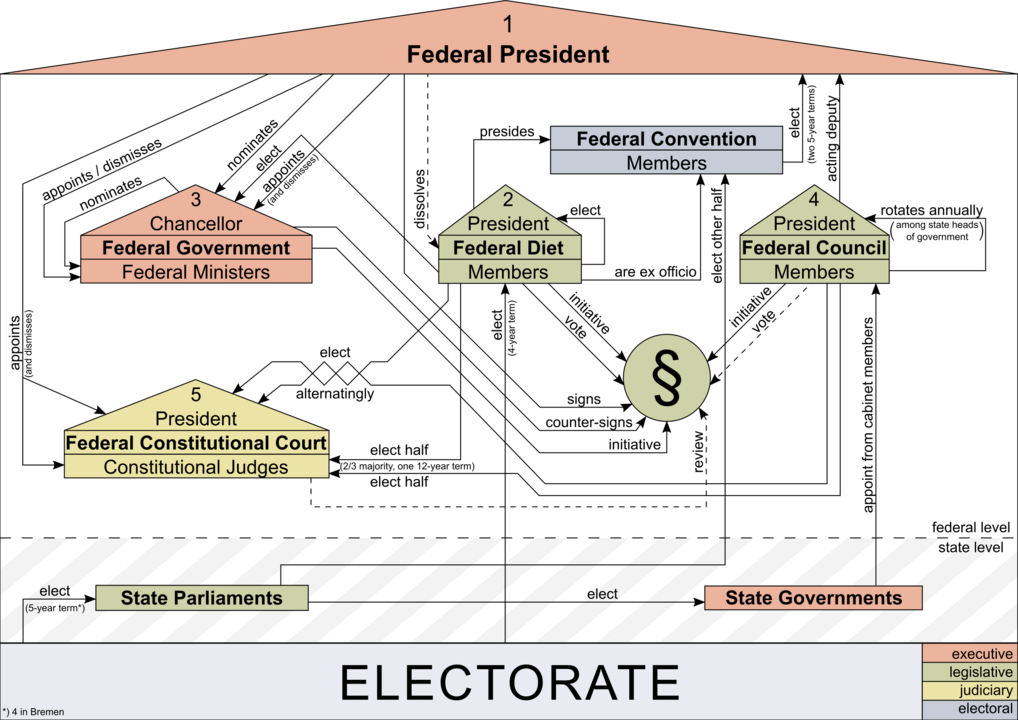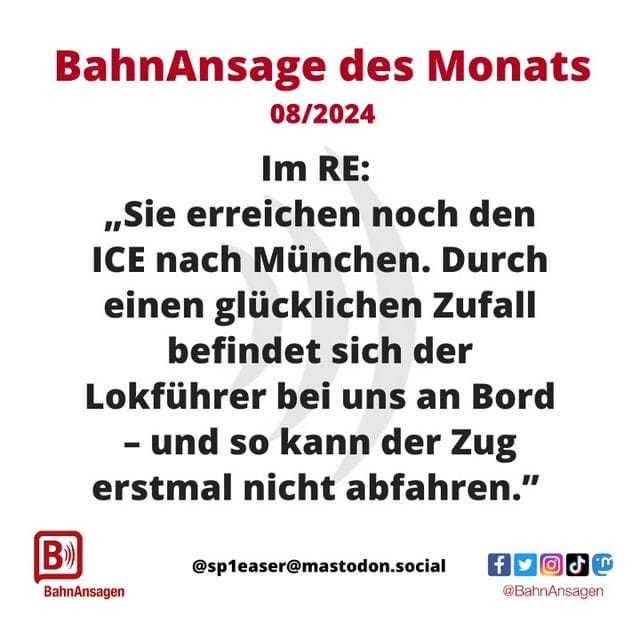What's Going On?
With the far-right AfD party gaining seats in state elections in Thuringia and Saxony, a look at German politics for newcomers

I had a post about recycling in Germany all queued up, but my news feed has been overwhelmed this morning about the results of the state elections in Thuringia and Saxony.
So I’m saving the literal trash talk for next week, to take a look at a metaphorical dumpster fire—politics.
These two state elections have been closely watched all across Germany because the far-right party, Alternative für Deutschland (AfD), was leading in the polls.
If you are not a follower of German or European politics, you can check out this earlier post for more about the AfD, and this other post about its surge in popularity in the recent elections for the EU Parliament.
As predicted, the AfD did get the most votes in Thuringia - at 32.8 percent of the total - almost nine points ahead of the conservative Christian Democratic Union (CDU), who came in second. And the party came in a close second in the Saxony election - winning 27.5 percent of the vote to the CDU’s 32.1.

What does this mean?
If you are wondering how the AfD “won” the election in Thuringia with just over 30 percent of the vote, and why a small state assembly election is such a big deal, it helps to understand the German political system.1
Germany is a federal parliamentary republic made up of 16 different states (called Länder, in German). Citizens of each state elect members of a state parliament, with each member serving a three-year term.
The state parliaments then elect their state executive governments, as well as half of the members of the Federal Convention (the Bundesversammlung). (The other half are all the members of the Bundestag, the German Federal Parliament, with members directly elected nationwide. The Bundesversammlung elects the Federal President.)
The state executive governments - elected by the state parliament - appoint representatives from within their bodies to serve on the Federal Council (Bundesrat) - in addition to the running of their individual state.
I know, it’s complicated.
I am not going to get deep into the separation of powers at the national level here. For an overview, check out the graphic below and this article on the German political system.

When German voters go to the polls in both state and federal elections, they have two votes: first, for a person running in their constituent area; and second, for a political party’s list of candidates. The second vote is important because it determines the number of seats each party should have in the state parliament.
The German constitution (the Grundgesetz, it literally translates to the “Basic Law”) guarantees proportional representation in government. Each party will have a proportional number of seats corresponding to their percentage of the vote total.
There is also something known as the “five percent hurdle” that requires parties to get at least five percent of the vote or two direct mandates to enter a parliament.
In the recent Thuringia election, for example, the state had been led by a governing coalition formed between The Left, the Social Democratic Party, and the Greens. But the Greens and the Free Democrats failed to get more than five percent of the vote and lost their seats in the state parliament completely. The Left lost 17 seats after getting only 13 percent of the vote, compared to the previous election when it had 29 seats. With more than 32 percent of the vote, the AfD now has 32 seats in the assembly.
How strong is the ‘firewall?’
Normally, that would put the AfD in the state’s governing coalition.2 But all other German political parties have pledged not to be a part of a coalition with the AfD - in a strategy they have termed “a firewall” to protect democracy.
It remains to be seen whether and how the remaining parties will be able to build a governing coalition for the state.
This will leave the AfD the main opposition party in Thuringia, and it will have the votes to block any legislation requiring a two-thirds majority.
But beyond the AfD’s official power, the election results are having an impact on the German national consciousness in other ways.
“This is the first time in an election for a state parliament that the far-right Alternative for Germany (AfD) party received more than a third of the vote,” explains the online publication, Deutsche Welle, in its coverage of the vote. “Plus, the parties which make up the Berlin-based federal government have never seen such bad results in a regional vote.”
The votes in the two states are definitely being seen as a harbinger of what’s to come for the federal elections next year.
A dark historical precedent
Some observers were quick to note the historical similarities between the current election and that of 1930, in which the Nazi Party obtained their first electoral victory.
“It became the second-largest party in the regional elections gaining 11 out of 53 seats, which allowed them to form a coalition government and appoint the first minister of the interior and education,” writes Farid Hafez in the online publication, EU Observer. “This served as a first testing ground for many of their policies, before they came to power at the national level three years later.”
More recently, three members of the neo-Nazi group, National Socialist Underground, which is based in Jena, Thuringia’s second-largest city, were convicted in a series of racially motivated murders in the early 2000s.
The state’s AfD party leader, Björn Höcke, is known for being one of its more extreme members, advocating for mass deportations and having been convicted in court of using banned Nazi slogans.
Students and skilled workers getting cold feet
As news coverage of the election spread, I saw many posts in online forums and social media from people who had been accepted into study programs in Germany or who had been offered jobs here asking for local perspective.
With the AfD so clearly surging in popularity, is it safe for them to come to study and to live?
And, my initial reaction is that support for the AfD is a minority of people in small areas of the east who feel angry at the current national government.
And, Thuringia is a very small, rural state - with just 2.1 million residents. It is roughly a third of the population of Berlin, and a third of eligible voters there voted for the AfD. (Saxony has almost twice the population - just over 4 million.)
But, as I also pointed out in a previous article, the real, immediate danger is more that the AfD’s rhetoric amps up anti-foreigner and anti-immigrant sentiment and encourages a climate where small-scale aggressions and acts of violence are normalized and supported.
I am also mindful that the Nazi’s came to power without ever winning a majority of the German vote. And, I know from experience - in the U.S. - how rapidly the political environment can shift. Statements, ideologies and behaviors can move quickly from the fringe to the mainstream.
I wouldn’t say I am frightened by the surge of the AfD right now. But it is concerning and making us question whether we want to continue to invest in a long-term life here.
I am not a German citizen and cannot vote, so I have no direct experience. I am summarizing based on the public resources I have read. They are linked in the articles and the notes.
If they had gotten more than 50 percent of the vote, they could form a government outright. But with Germany’s multi-party system, coalitions to get to a majority are almost always necessary.
Other Stuff
On a lighter note, here are some cool and interesting things I’ve read, heard and seen about Germany this week.
Reading
Jon Worth: Berlin’s problem with dumped cars.
I read Jon’s newsletter about cross-border rail, but he also lives in Berlin and rides a bike! And he writes about it. Check out this post about abandoned or non-working cars in Berlin.
The [@]BahnAnsagen account on X, BlueSky, Mastodon and Instagram. People send in the funny train announcements that they have heard on transit. Readers vote on the funniest. This is the August winner.
Translation: “In the RE [regional train]: ‘You will still reach the ICE to Munich. By happy coincidence, the train driver is with us on board - and thus the train can’t depart first.’”
Watching
I may have actually posted this before. But I was watching this other video from Kirsten Dirksen about a family home in Norway that has a greenhouse built around it. It reminded me of my favorite ARD Room Tour. Apart from the main house constructed mostly (entirely?) of earth, this is my dream house.
Listening
Do you read The Berliner? If so, check out what the staff is listening to here:






The first thing I thought while reading this was the Nazis gaining power with only one third of the seats in the Reichstag and we know what the result of that was